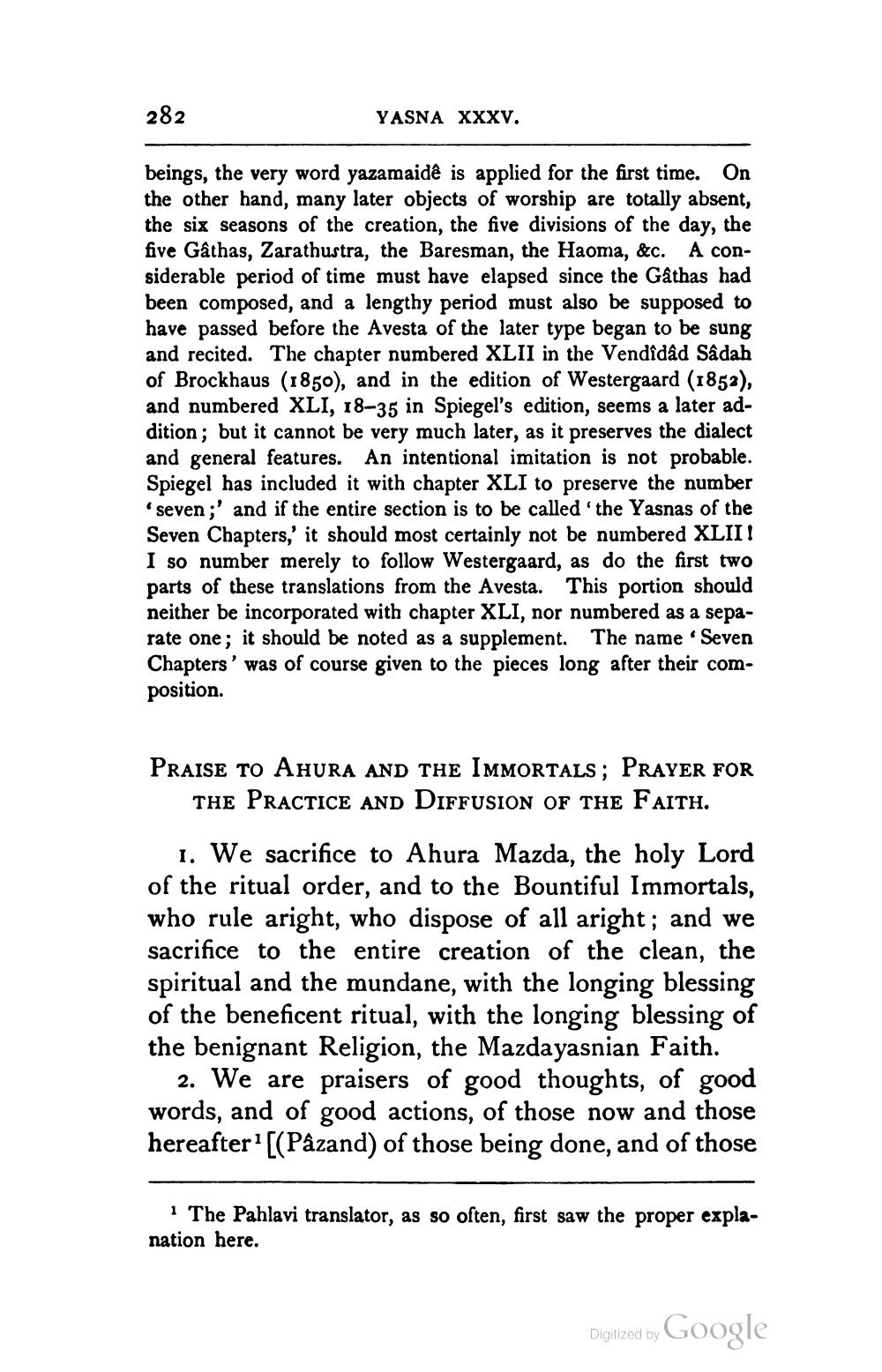________________
282
YASNA XXXV.
beings, the very word yazamaidê is applied for the first time. On the other hand, many later objects of worship are totally absent, the six seasons of the creation, the five divisions of the day, the five Gâthas, Zarathustra, the Baresman, the Haoma, &c. A considerable period of time must have elapsed since the Gathas had been composed, and a lengthy period must also be supposed to have passed before the Avesta of the later type began to be sung and recited. The chapter numbered XLII in the Vendidad Sadah of Brockhaus (1850), and in the edition of Westergaard (1852), and numbered XLI, 18-35 in Spiegel's edition, seems a later addition; but it cannot be very much later, as it preserves the dialect and general features. An intentional imitation is not probable. Spiegel has included it with chapter XLI to preserve the number • seven ;' and if the entire section is to be called 'the Yasnas of the Seven Chapters,' it should most certainly not be numbered XLII ! I so number merely to follow Westergaard, as do the first two parts of these translations from the Avesta. This portion should neither be incorporated with chapter XLI, nor numbered as a separate one; it should be noted as a supplement. The name Seven Chapters' was of course given to the pieces long after their composition.
PRAISE TO AHURA AND THE IMMORTALS; PRAYER FOR
THE PRACTICE AND DIFFUSION OF THE FAITH. 1. We sacrifice to Ahura Mazda, the holy Lord of the ritual order, and to the Bountiful Immortals, who rule aright, who dispose of all aright; and we sacrifice to the entire creation of the clean, the spiritual and the mundane, with the longing blessing of the beneficent ritual, with the longing blessing of the benignant Religion, the Mazdayasnian Faith.
2. We are praisers of good thoughts, of good words, and of good actions, of those now and those hereafter [(Pazand) of those being done, and of those
· The Pahlavi translator, as so often, first saw the proper explanation here.
Digitized by
Digitized by Google




